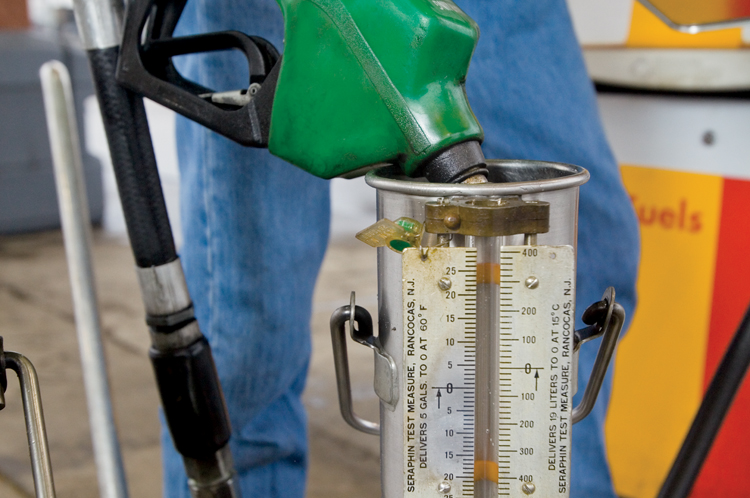Home > Tennessee > Tennessee Crops & Livestock > Scales, Gasoline Pumps Measure Up Thanks to State Inspectors
Scales, Gasoline Pumps Measure Up Thanks to State Inspectors
In partnership with: Tennessee Department of Agriculture

Have you ever wondered what would happen if you drove away from a gas station with the fuel nozzle still in your tank? Would there be damage to your vehicle and gasoline pouring out onto the pavement?
While the Tennessee Department of Agriculture can’t fix your car or cure your embarrassment, the inspectors in its Weights and Measures division do work to prevent a gas spill hazard. That’s because they’re responsible for inspecting every gas pump every year to be sure that every pump is equipped with a shear valve that is designed to shut off the fuel flow if a pump is dislodged.
The inspectors take samples from each location in the state that conveys motor fuels and heating oils – testing more than 8,000 samples per year for tests such as octane, water and sediment, and other parameters to ensure that the fuel meets compliance standards. The inspectors also check the actual fuel dispensers to be sure they are properly labeled and calibrated, so that consumers can rely on the accuracy of what they see on the pump.
Gas pumps aren’t the only devices the inspectors test. From grocery store scales to truck and livestock scales, the inspector’s job is to verify the accuracy of the nearly 19,000 scales in businesses across the state.
“We’re a third party that works to protect the consumer and educate the business,” says Bob Williams, administrator of Weights and Measures. He explains that although 99 percent of their inspections are unannounced, their job isn’t adversarial.
“Our inspectors work with management to help them understand the rules,” he says. “We visit retail stores to do check weighing and to verify that scanned UPC codes match prices on the shelf.” If discrepancies are found, Williams says, the inspectors provide guidance, allow a short time for the retailer to fix the problem, and then come back to re-inspect.
Another important function of the unit is the testing of liquid propane gas and bulk fuel meters.
Such behind-the-scenes work means that the inspectors don’t interface with the public very often.
“However, if consumers are concerned about the accuracy of a fuel pump, for instance, and they’ve talked to the station without satisfaction, they can contact us at 1-800-OCTANE1 and we’ll look into it,” Williams says.



